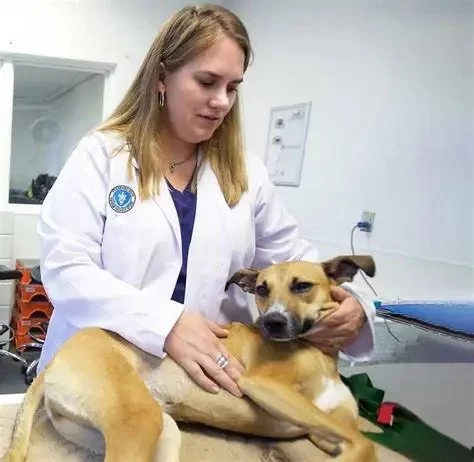Is Veterinary Medicine a Major? Everything You Need to Know to Start Your Journey
- what-exactly-is-veterinary-medicine-as-a-major
- the-pathway-toward-becoming-a-veterinarian
- popular-undergraduate-majors-related-to-veterinary-school
- real-student-experience-preparing-for-vet-school
- career-options-and-why-this-major-matters
- is-veterinary-medicine-the-right-major-for-you
1. What Exactly Is Veterinary Medicine as a Major?
When students ask, “is veterinary medicine a major?”—the short answer is: not typically. In most U.S. colleges, "veterinary medicine" itself isn’t offered as a direct undergraduate major. Instead, students choose a related field that fulfills vet school prerequisites. Think of it more like a path than a program title.
Common choices include Animal Science, Biology, or even Biochemistry, but the goal remains the same: prepare for the competitive journey toward veterinary school. These majors provide the foundational knowledge—both theoretical and practical—needed to succeed in professional veterinary programs.
2. The Pathway Toward Becoming a Veterinarian
To become a veterinarian in the U.S., you must first earn a Doctor of Veterinary Medicine (DVM) degree from an accredited school. But before that, you’ll need to complete undergraduate studies. This is where the idea of a “pre-vet” track comes in—it's not a formal major, but a structured group of science courses required for admission into vet schools.
These typically include:
- General and Organic Chemistry
- Biology and Microbiology
- Physics and Mathematics
- Animal Nutrition and Physiology
Each veterinary school may have slightly different requirements, so students should work closely with advisors to tailor their undergraduate path. Choosing the right "major" is about aligning interests and course prerequisites.
3. Popular Undergraduate Majors Related to Veterinary School
So, if "veterinary medicine" isn’t offered directly, what do students actually major in? Here are the top picks:
Animal Science: Often considered the most direct route. This major includes hands-on animal care, livestock management, and health science.
Biology or Biochemistry: Perfect for students who love cellular science and plan to work in research or lab-based veterinary fields.
Zoology: Ideal for students interested in wildlife or exotic animal care.
Psychology or Public Health: Less common but great options for students aiming toward behavior-focused or epidemiological veterinary careers.
These majors all offer different strengths. Some students even double-major or minor in areas like business or communication to broaden their future opportunities in practice ownership or public education.
4. Real Student Experience: Preparing for Vet School
Meet Emily, a senior Animal Science student at Ohio State. She didn’t grow up on a farm, nor did she start college knowing she wanted to be a vet. But after volunteering at a shelter and shadowing at a local clinic, her path became clear.
“I chose Animal Science because it gave me real lab and barn experience. I learned how to handle livestock, run diagnostic tests, and understand animal behavior—far beyond what a textbook could offer,” Emily says.
Her story is common. Many students discover their passion through practical exposure. Internships, part-time jobs, and even rescue work help build both confidence and a competitive vet school application.
5. Career Options and Why This Major Matters
A major related to veterinary medicine doesn’t lock you into just becoming a vet. Graduates with these backgrounds often find themselves working in:
- Animal nutrition or pharmaceutical sales
- Zoo and wildlife conservation
- Pet product innovation and testing
- Regulatory and food safety positions
These roles still align with animal care and science, but may offer alternative routes for students unsure about vet school—or those who want to work with animals in non-clinical ways.
6. Is Veterinary Medicine the Right Major for You?
The better question might be: Are you ready to commit to the science-heavy, emotionally involved, and financially demanding path that leads to veterinary medicine?
Choosing a major tied to veterinary school means choosing to work hard. It means hours of biology labs, shadowing professionals, and preparing for rigorous entrance exams like the GRE. But for those who truly love animals and see healing as a mission, it’s deeply rewarding.
Before committing, consider:
- Can you handle rigorous science coursework?
- Do you enjoy both animals and working with people?
- Are you ready for the long-term investment in your education?
If your answer is yes, then yes—pursuing a degree that leads to veterinary medicine is absolutely the right choice.
Ready to explore tools and resources that support your academic journey toward veterinary school? Browse our curated products and pre-vet essentials today to turn your passion into purpose.












